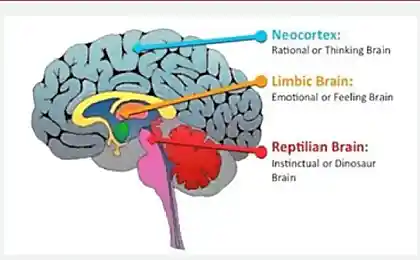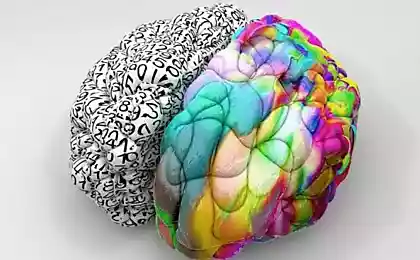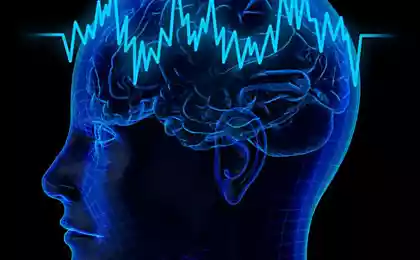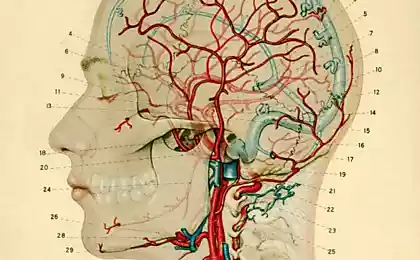758
Lack of sleep causes a "shutdown" of the brain
Lack of sleep leads to emotionally irrational behavior. When a person is not getting enough sleep, the emotional brain centers adequately respond to negative experiences, according to a study published this week in the journal Current Biology.

The study, led by Matthew Walker of the sleep laboratory of the University of California (Berkeley) confirmed the presence of neural connections between the lack of, or lack of sleep and psychiatric disorders.
Lack of sleep leads to emotionally irrational behavior, the researchers found, analyzed using functional magnetic resonance images (fMRI), which takes place in areas of the brain responsible for emotions when people get too little sleep.
Conversely, "sleep seems to restore our emotional brain structure and thus prepare us for the challenges of the coming day and social interactions, - he added. - Important in this study - that it has demonstrated the danger of lack of sleep ».
"Lack of sleep affects the mechanisms that regulate key aspects of our mental health - said Walker. - The fundamental point is that the dream - is not a luxury that we choose when we want. It is a biological need, and without sleep string can stretch up to a certain limit, and then it bursts, causing cognitive and emotional consequences ».
The researchers divided 26 healthy individuals into two groups, one of which slept fine, but the other members were forced to stay awake for 35 hours.
The next day, scanning was conducted functional magnetic resonance brain research participants.
Using fMRI measured activity of the various areas of the brain blood flow analysis based on the time when participants treat various images.
First, they showed emotionally neutral images, but gradually they were replaced by more unpleasant picture.
"We assumed that the emotional reaction of the brain (in people deprived of sleep) may be stronger, but the scale of change we were struck," - said Walker.
The emotional centers of the brain nespavshih group members responded to 60% more than those who slept normally.
"Everything happened as if due to lack of sleep, the brain would be treated to the most primitive patterns of behavior, losing the ability to put emotional experiences into context and to respond adequately," - he added.
A source

The study, led by Matthew Walker of the sleep laboratory of the University of California (Berkeley) confirmed the presence of neural connections between the lack of, or lack of sleep and psychiatric disorders.
Lack of sleep leads to emotionally irrational behavior, the researchers found, analyzed using functional magnetic resonance images (fMRI), which takes place in areas of the brain responsible for emotions when people get too little sleep.
Conversely, "sleep seems to restore our emotional brain structure and thus prepare us for the challenges of the coming day and social interactions, - he added. - Important in this study - that it has demonstrated the danger of lack of sleep ».
"Lack of sleep affects the mechanisms that regulate key aspects of our mental health - said Walker. - The fundamental point is that the dream - is not a luxury that we choose when we want. It is a biological need, and without sleep string can stretch up to a certain limit, and then it bursts, causing cognitive and emotional consequences ».
The researchers divided 26 healthy individuals into two groups, one of which slept fine, but the other members were forced to stay awake for 35 hours.
The next day, scanning was conducted functional magnetic resonance brain research participants.
Using fMRI measured activity of the various areas of the brain blood flow analysis based on the time when participants treat various images.
First, they showed emotionally neutral images, but gradually they were replaced by more unpleasant picture.
"We assumed that the emotional reaction of the brain (in people deprived of sleep) may be stronger, but the scale of change we were struck," - said Walker.
The emotional centers of the brain nespavshih group members responded to 60% more than those who slept normally.
"Everything happened as if due to lack of sleep, the brain would be treated to the most primitive patterns of behavior, losing the ability to put emotional experiences into context and to respond adequately," - he added.
A source
























